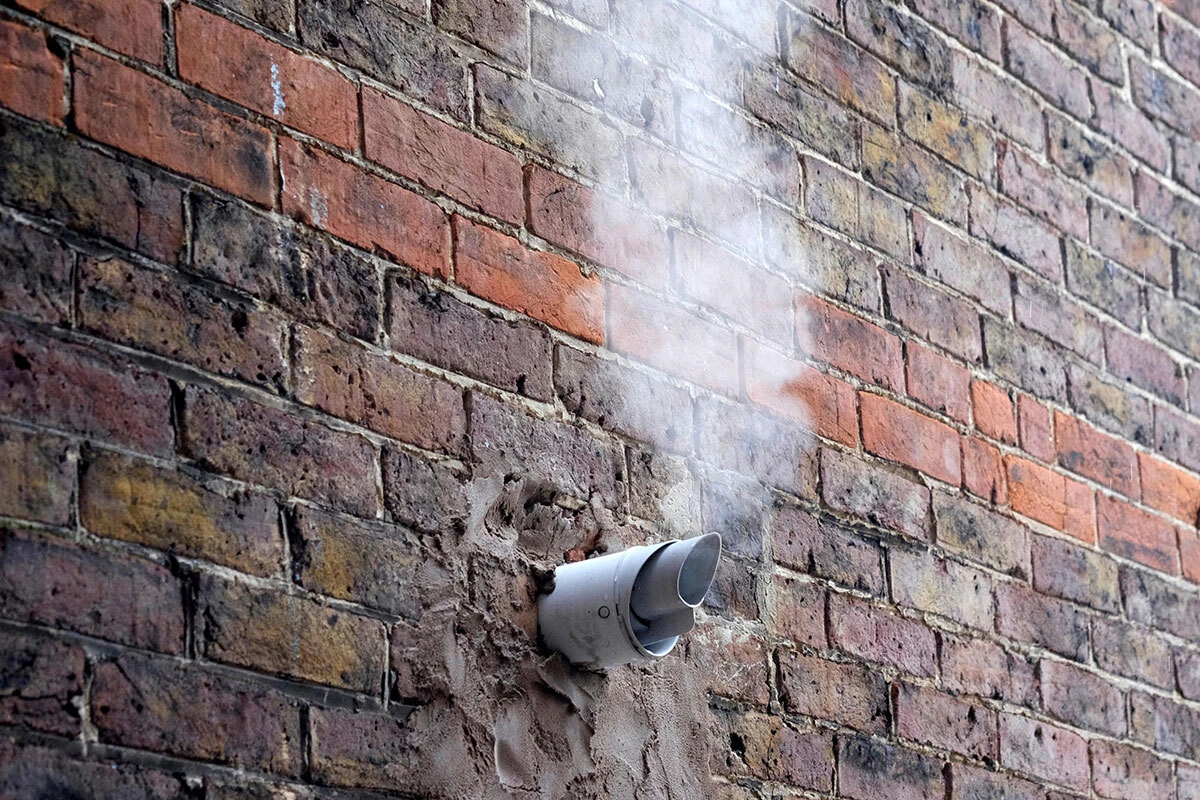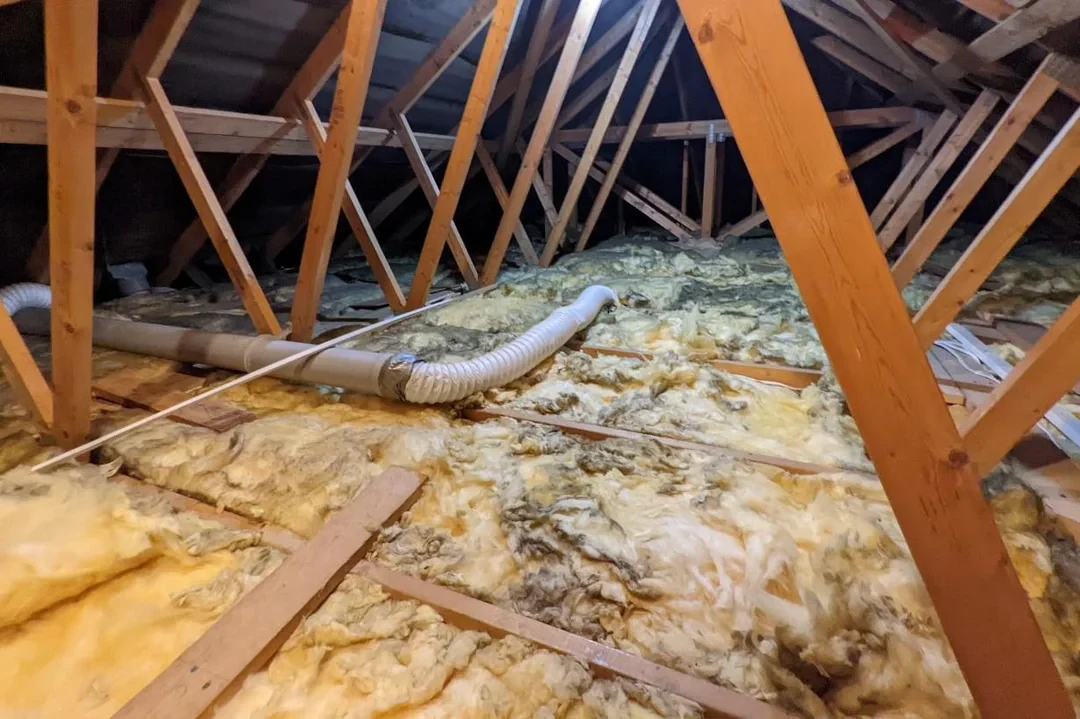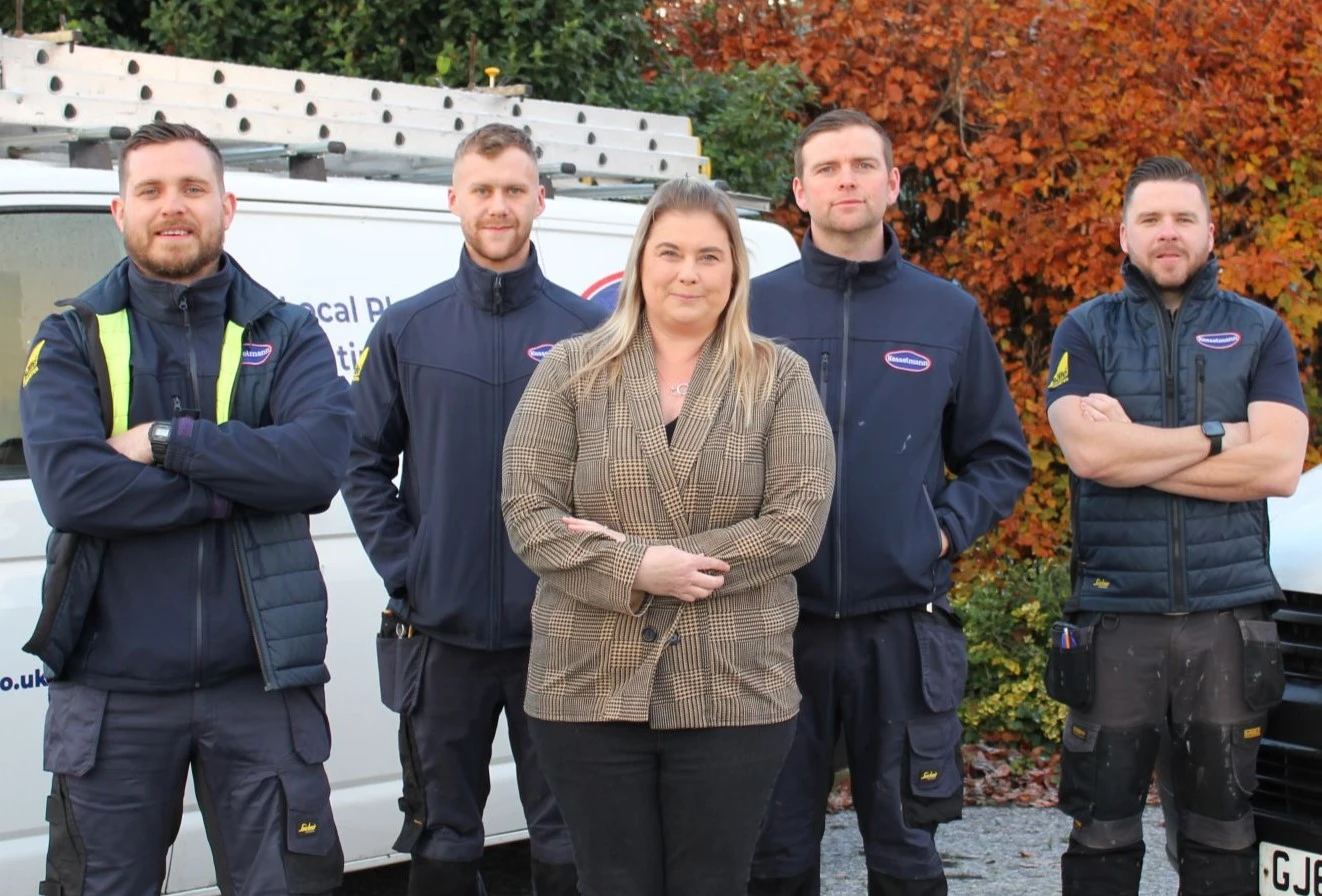08/02/2025

Introduction
A hidden plumbing leak can be a homeowner's worst nightmare. It's not just about the dripping tap that drives you crazy; we're talking about water damage lurking behind walls, under floors, and in ceilings, leading to mould, rot, structural damage, and hefty repair bills.
The problem is, these leaks often go unnoticed until the damage is extensive. That's why it's crucial to be aware of the subtle clues that might indicate a hidden plumbing leak. Catching it early can save you a fortune and a whole lot of stress.
This comprehensive guide will explore the top five silent signs of a hidden plumbing leak, explain how to detect them, and provide expert advice on what to do next.
1. Unexplained Increase in Your Water Bill:
This is often the first and most obvious sign. If your water usage hasn't changed drastically (e.g., no new landscaping, extra guests, or filling a pool), yet your bill is significantly higher, a hidden leak is a prime suspect.
Even small leaks can waste a surprising amount of water over time.
How to Investigate:
Compare Bills: Review your water bills over the past few months. Look for any unusual spikes.
Check Your Meter: Locate your water meter and note the reading. Don't use any water for a couple of hours (e.g., overnight), then check the meter again. If the reading has increased, you likely have a leak.
Calculate Potential Savings: Use online water usage calculators to estimate how much water a leak could be wasting. This can motivate you to take action quickly.
What it Could Mean: A consistently high bill, even without a noticeable leak, could also indicate a problem with your meter or a change in water rates. Contact your water company (e.g., Yorkshire Water)to rule these out.
2. Damp or Discoloured Walls/Ceilings:
Water stains, peeling paint, bubbling wallpaper, or a musty odour can all be tell-tale signs of a leak. Pay close attention to walls adjacent to bathrooms and kitchens, as well as ceilings below upper-level bathrooms.
Types of Stains:
Brown or Yellow Stains: These often indicate a long-standing leak.
Grey or Black Stains: These could signal mould growth, which is a serious health hazard. (For more information, see the UK GOV guidance on damp and mould in the home)
Moisture Tests: Use a moisture meter to check the dampness of walls and ceilings. A high reading suggests a leak.
Potential Problems: Ignoring these signs can lead to structural damage, as water can weaken framing and other building materials.
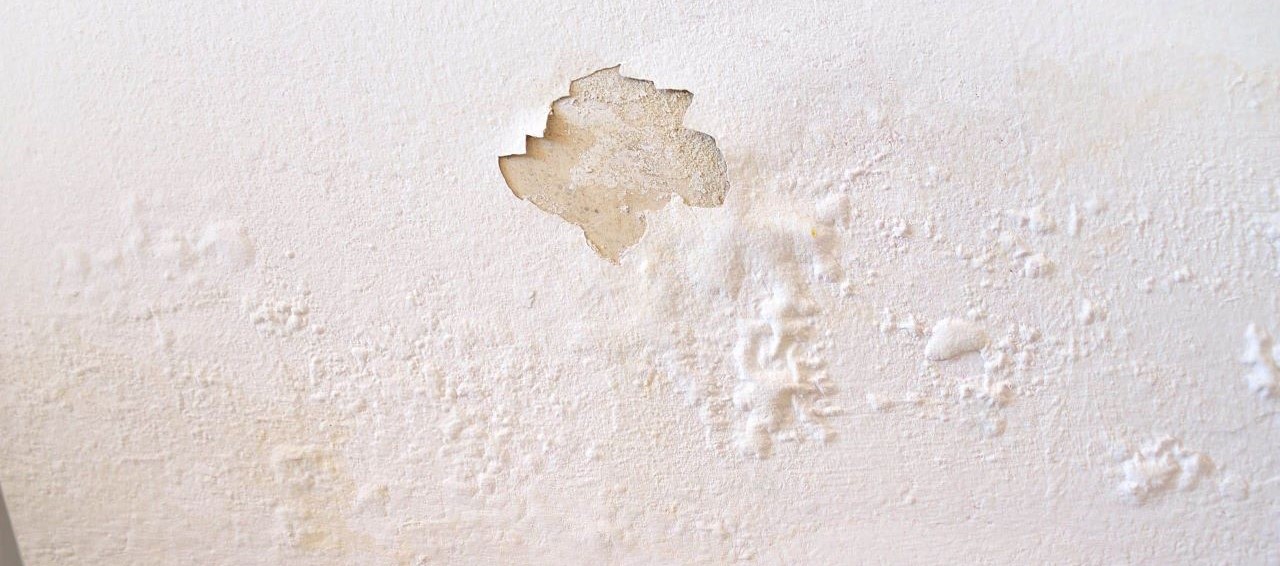
3. Soft or Springy Floors:
If you notice a section of flooring that feels spongy or gives way slightly when you walk on it, it could be due to water damage from a leak. This is particularly common in bathrooms and kitchens where water spills are frequent.
Affected Flooring Types:
Wood Floors: Warping, cupping, or buckling are common signs.
Tile Floors: Grout discoloration or loose tiles can indicate a leak underneath.
Carpet: Damp or musty smells, as well as discolouration, are tell-tale signs.
Subfloor Damage: The subfloor (the layer beneath the finished floor) may be absorbing water from a hidden leak, causing it to warp and soften. This can lead to costly repairs.
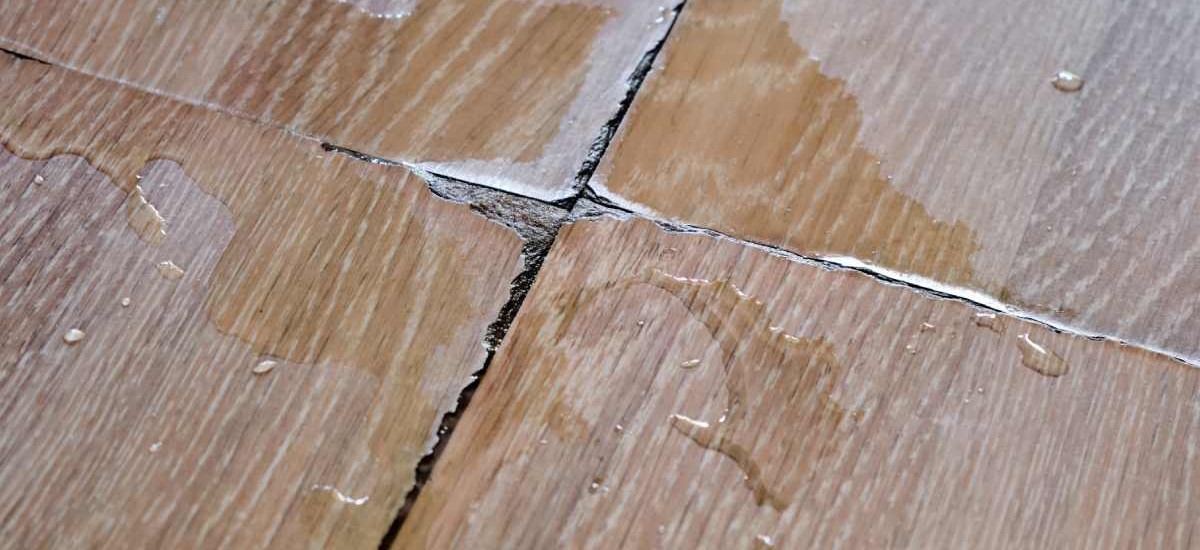
4. Running Water Sounds When No Taps Are On:
This is a classic sign of a hidden leak. If you hear the sound of running water even when all your taps and appliances are turned off, it's highly likely that water is escaping somewhere in your plumbing system.
Pinpointing the Sound:
Listen Carefully: Try to pinpoint the location of the sound. Is it coming from a wall, ceiling, or floor?
Check at Different Times: The sound might be more noticeable at certain times of day, such as when water pressure is higher.
Possible Leak Locations: The sound could be coming from a leaking pipe, a running toilet, or even a leak in an appliance.
5. Mould or Mildew Growth:
Mould thrives in damp environments, so its presence, especially in unusual places, can indicate a hidden leak. Check for mould growth behind cabinets, under sinks, in less-ventilated areas, and around pipes.
Health Risks: Mould can cause respiratory problems such as Aspergillosis, and other health issues. (For more information on Aspergillosis, see the NHS guidance here)
Professional Remediation: If you find mould, it's essential to address the leak and have the mould professionally remediated.
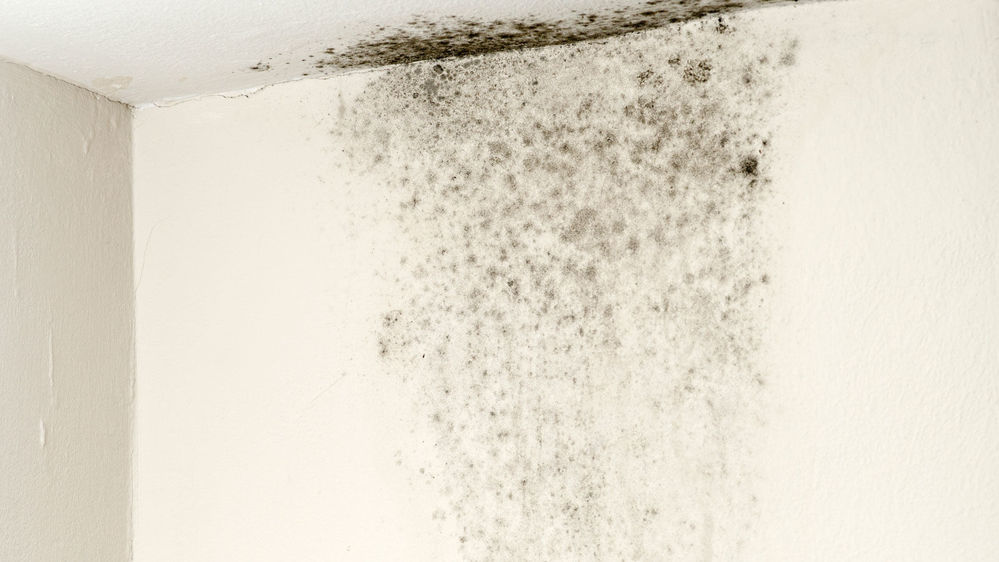
What to Do If You Suspect a Leak:
If you notice any of these signs, it's essential to take action quickly. Here's what you should do:
Check Obvious Sources: Inspect visible plumbing fixtures, such as taps, toilets, and water heaters, for any signs of leaks.
Turn Off Your Main Water Supply: If you suspect a major leak, turning off the main water supply can prevent further damage until you can identify the source.
Call a Professional Plumber: For hidden leaks, it's best to call a qualified plumber. They have the expertise and equipment to locate and repair the leak efficiently. Attempting to fix a hidden leak yourself can often make the problem worse.
Preventing Hidden Leaks:
Regular Inspections: Have your plumbing system inspected regularly by a professional plumber.
Maintain Your Plumbing: Fix any minor leaks promptly and replace worn-out fixtures.
Be Mindful of Water Usage: Avoid flushing non-flushable items and don't overuse chemical drain cleaners.
Don't let a hidden plumbing leak wreak havoc on your home. By being aware of these silent signs and taking prompt action, you can protect your property and your wallet. Early detection is key to preventing costly repairs and ensuring the long-term health of your home.
Our Leak Detection and Repair Services:
Here at Kesselmann, we offer comprehensive leak detection and repair services for both residential and commercial properties in Hull, East Yorkshire & North Lincolnshire.
Our experienced and Gas Safe registered plumbers use the latest technology to quickly and accurately identify the source of even the most hidden leaks, minimising disruption and damage to your property.
We then provide you with a clear and transparent explanation of the problem and the best solution for your needs.
If you require professional assistance with a plumbing leak, don't hesitate to contact us online or by telephone on 01482 770650.
Other Related Guides
How Much Does a Water Leak Cost to Fix?
Will Plumber's Putty Stop a Leak on Copper Pipe?
Why Does My Combi Boiler Keep Losing Pressure?
